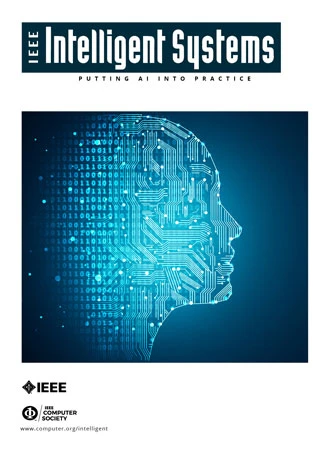人工智能伦理与信任:从原则到实践
IF 6.1
3区 计算机科学
Q1 COMPUTER SCIENCE, ARTIFICIAL INTELLIGENCE
引用次数: 0
摘要
尽管政府机构、大型企业和学术机构等不同组织制定了大量人工智能(AI)伦理框架,但由于其复杂性,在实践中实施和操作人工智能伦理和法律框架仍然是一项挑战。实施和操作涉及设计、开发、展示、测试和评估方法的原创性理论和实践研究的不同方面,这些研究得到了先进的人工智能技术和跨学科研究的支持,特别是社会科学、法律和认知科学。本社论概述了人工智能伦理与信任的可操作性领域,并重点介绍了本特刊涉及的几个关键主题,即人工智能伦理实施的现状、人工智能中的信任与可信度、信任校准的伦理框架、建立人工智能道德的方法、以模式为导向的工程方法实施人工智能伦理,以及包容性用户研究。本文章由计算机程序翻译,如有差异,请以英文原文为准。
Artificial Intelligence Ethics and Trust: From Principles to Practice
Despite the proliferation of ethical frameworks of artificial intelligence (AI) from different organizations such as government agencies, large corporations, and academic institutions, it is still a challenge to implement and operationalize ethical and legal frameworks for AI in practice due to its complexities. The implementation and operationalization involve different aspects in original theoretical and practical research on designing, developing, presenting, testing, and evaluating approaches, which are supported by advanced AI techniques and interdisciplinary research, in particular, social science, law, and cognitive science. This editorial provides an overview of the field of operationalization of AI ethics and trust, and highlights a few key topics covered in this special issue, i.e., the current landscape of AI ethics implementation, trust and trustworthiness in AI, ethical framework for trust calibration, approaches to build morality in AI, implementation of AI ethics with a pattern-oriented engineering approach, and inclusive user studies.
求助全文
通过发布文献求助,成功后即可免费获取论文全文。
去求助
来源期刊

IEEE Intelligent Systems
工程技术-工程:电子与电气
CiteScore
13.80
自引率
3.10%
发文量
122
审稿时长
1 months
期刊介绍:
IEEE Intelligent Systems serves users, managers, developers, researchers, and purchasers who are interested in intelligent systems and artificial intelligence, with particular emphasis on applications. Typically they are degreed professionals, with backgrounds in engineering, hard science, or business. The publication emphasizes current practice and experience, together with promising new ideas that are likely to be used in the near future. Sample topic areas for feature articles include knowledge-based systems, intelligent software agents, natural-language processing, technologies for knowledge management, machine learning, data mining, adaptive and intelligent robotics, knowledge-intensive processing on the Web, and social issues relevant to intelligent systems. Also encouraged are application features, covering practice at one or more companies or laboratories; full-length product stories (which require refereeing by at least three reviewers); tutorials; surveys; and case studies. Often issues are theme-based and collect articles around a contemporary topic under the auspices of a Guest Editor working with the EIC.
 求助内容:
求助内容: 应助结果提醒方式:
应助结果提醒方式:


